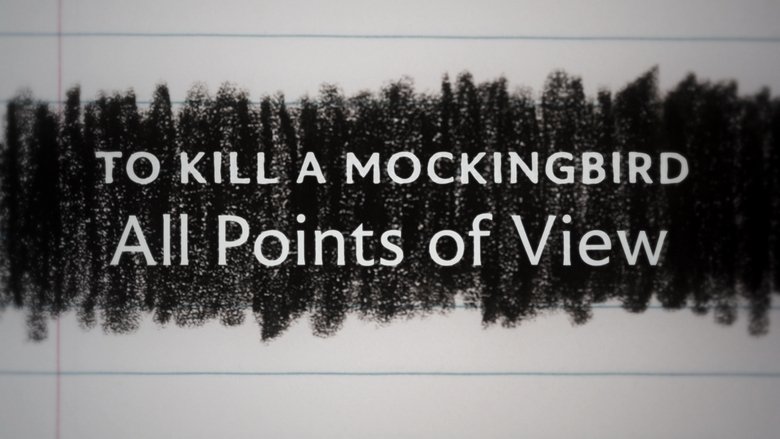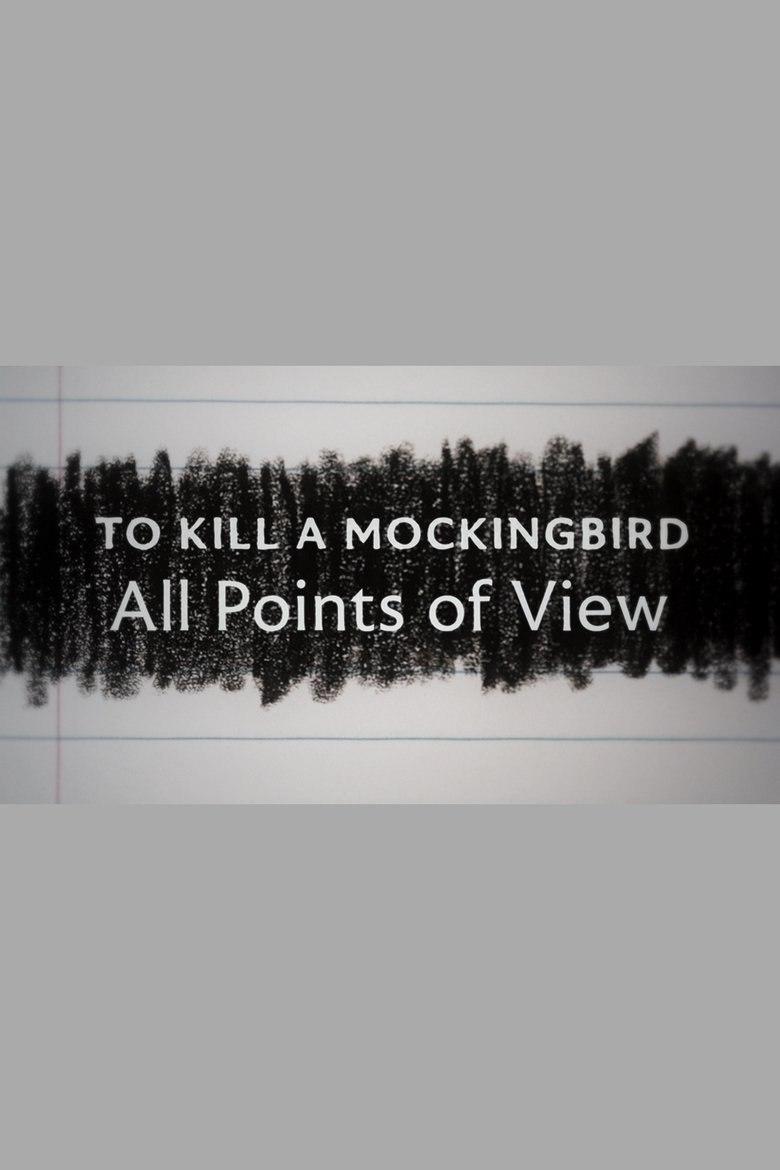Loading


To Kill a Mockingbird: All Points of View
Genres
Documentary
Overview
A 60th anniversary retrospective documentary on the influence and context of the 1962 film, To Kill a Mockingbird.
Details
Budget
$0
Revenue
$0
Runtime
25 min
Release Date
2022-10-11
Status
Released
Original Language
English
Vote Count
0
Vote Average
0
Cast
Meet the talented actors who bring the movie to life.
Leonard Maltin
Self
Barack Obama
Self (Archive Footage)
Gregory Peck
Archive Footage
Thomas DiPiero
Self
Shona Tucker
Self
Bob Gazzale
Self
Donald Bogle
Self
Sandra Crouch
Self
Kira Orion Halcott
Self
Mia Mask
Self
Robert Mydlo
Self
Cecilia Peck
Self
Christopher Peck
Self
Frances Quashie-Idun
Self
Shana Redmond
Self
Similar Movies
Explore movies similar to this one that you might also enjoy.
0.0
8 Arms to Hold You
An "Ock-umentary" exploring the character of Doc Ock and the way he as well as his tentacles were brought to life on the silver screen.
2004-11-30 | en
6.4
Space Station 3D
Some 220 miles above Earth lies the International Space Station, a one-of-a-kind outer space laboratory that 16 nations came together to build. Get a behind-the-scenes look at the making of this extraordinary structure in this spectacular IMAX film. Viewers will blast off from Florida's Kennedy Space Center and the Baikonur Cosmodrome in Russia for this incredible journey -- IMAX's first-ever space film. Tom Cruise narrates.
2002-04-17 | en
7.4
Do Not Split
The story of the 2019 Hong Kong protests, told through a series of demonstrations by local protestors that escalate into conflict when highly armed police appear on the scene.
2020-01-24 | en
2.0
While I’m Still Breathing
The blurred portrayal of a young woman as she moves through three steps of her sexuality.
2020-01-24 | fr
5.8
Dolphins
From the banks of the Bahamas to the seas of Argentina, we go underwater to meet dolphins. Two scientists who study dolphin communication and behaviour lead us on encounters in the wild. Featuring the music of Sting. Nominated for an Academy Award®, Best Documentary, Short Subject, 2000.
2000-04-14 | en
0.0
Fighting Chance
Three boxing athletes and one coach open up about their journey within the demanding sport. This touches on community, role models, mental health, and the sport perception on mainstream media.
2023-07-13 | en
0.0
Das Abendmahl
The celebration of communion in Christian ceremonies is one of the oldest elements of church tradition. The film shows how young people prepare and celebrate communion together during a leisure activity.
1988-01-01 | de
4.0
China Strikes Back
Raw footage received from photographer Harry Dunham revealed never before seen images of Mao Tse-Tung and the Eighth Route Army, inspiring Frontier to collectively shape a new film from desperate images, and to refine its dialectic editing.
1937-01-02 | en
7.2
Roving Mars
Join the Mars rovers Spirit and Opportunity for an awe-inspiring journey to the surface of the mysterious red planet.
2006-01-27 | en
7.7
Boogie Man: The Lee Atwater Story
Boogie Man is a comprehensive look at political strategist, racist, and former Republican National Convention Committee chairman, Lee Atwater, who reinvigorated the Republican Party’s Southern Strategy to increase political support among white voters in the South by appealing to racism against African Americans. He mentored Karl Rove and George W. Bush and played a key role in the elections of Reagan and George H.W. Bush.
2008-09-26 | en
7.0
The Rink
This short, silent film captures a Sunday afternoon at a community skating rink. Iconic Quebec director Gilles Carle has the camera follow toddlers learning to skate, young girls flashing their skates and boys decked out in the colours of their favourite hockey teams. A picture perfect moment on a bright winter's day.
1963-05-25 | en
0.0
Nordostsee-Canal-Festlichkeiten: Empfang des Kaisers am Dammthorbahnhof
Short film about the opening of the Kiel Canal in 1895. The Emperor arrives at the rail station.
1895-07-01 | de
6.3
Journey into Amazing Caves
Journey into Amazing Caves is an extraordinary IMAX adventure into the depths of the earth to uncover the secrets to life underground.
2001-03-01 | en
0.0
The Deal
Stop-motion animation on the arranging of marriages in 1950/60s set in the Eastern-Polish borderland. The script is based on a part of Mikołaj Smyk's diary, the director's grandfather. The biographical objects used in the animation, such as an authentic headscarf, Polish and Russian books, the copy of Mikołaj Smyk's diary and photographs help situate the story in its original environment.
2015-09-23 | en
0.0
The Road to the West
When was Canada populated by Native Americans from the West? This film relates the discovery of the New World from the time of the Vikings, around 880, to Jacques Cartier.
1965-01-01 | fr
0.0
Sanae's Journey to Tsuchiura Castle
Chris Jiménez follows Sanae Nagashima with his camera in her journey from the crowded streets of Asakusa to the ancient castle of Tsuchiura.
2020-02-13 | en
6.9
The Ossuary
A non-narrative voyage round Sedlec Ossuary, which has been constructed from over 50,000 human skeletons (victims of the Black Death).
1970-01-01 | cs
7.0
Betye Saar: Taking Care of Business
At age 93, there's no stopping the legendary artist Betye Saar.
2020-01-24 | en
0.0
All That Perishes at the Edge of Land
A ship berthed at Gadani and the ship-breakers coming from all over Pakistan to break it discover that they might have more in common than otherwise imagined, when they enter into a conversation.
2019-03-22 | ur
0.0
Wann ist der Mensch betrunken?
In order to determine the ability to drive after drinking alcohol, three men take various tests when sober and when drunk.
1957-01-01 | de